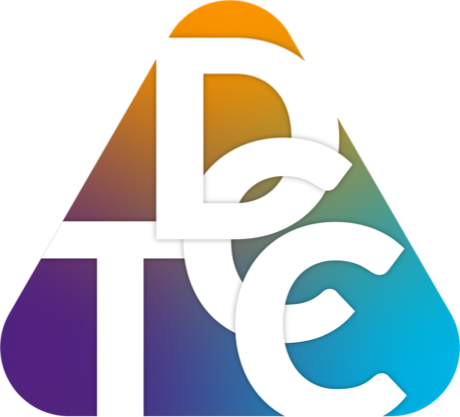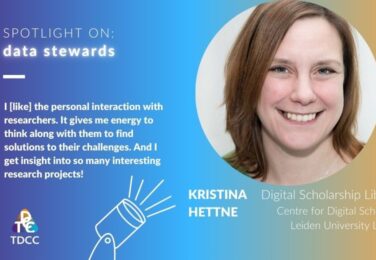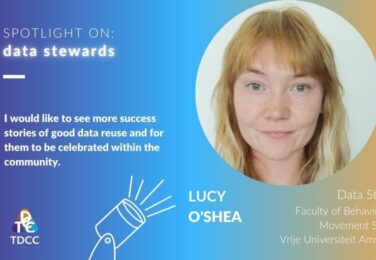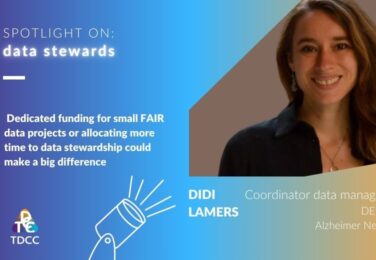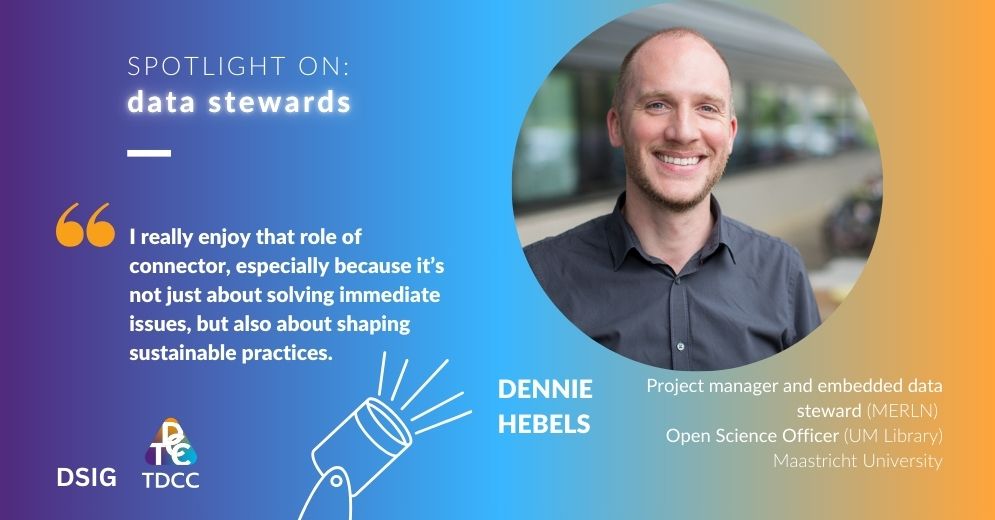
Spotlight on: Dennie Hebels
Every other week, the Thematic DCCs and the Data Steward Interest Group (DSIG) put the spotlight on one research data steward working in the Netherlands to stimulate knowledge exchange and peer-to-peer learning.
What drew you towards the research data management field?
During my PhD at Maastricht University (UM), I worked in genomics—a field that embraced FAIR and Open Science principles long before these terms became widely known. Genomics is a quintessential example of "big data": not just large in size (datasets can reach terabytes), but rich in complexity and reuse potential. The same dataset can be used to answer vastly different research questions, which the field recognized early on. Given the scale of investment in generating this kind of data, it made little sense not to ensure it was reusable by others. That meant sharing data—and sharing data meant organizing it properly.
This naturally led to community-wide adoption of data quality standards to ensure that datasets were FAIR. I found this structured, thoughtful approach to data management fascinating, especially because it also enabled me to reuse datasets from other researchers in my own work.
After a few postdoc positions in genomics, I transitioned to a project management role at the MERLN Institute (60%), which I now combine with my role as Open Science Officer at the UM Library (40%). Within my position at MERLN, I also serve as an embedded data steward, applying my research and data experience to support good data management practices at the institute level.
What is an activity/task of your role that you find yourself looking forward to?
One of the things I look forward to most in my role is acting as a bridge between different worlds: researchers, IT specialists, Open Science experts, legal advisors, and policy makers. As an embedded data steward, I often find myself translating between these groups, helping them understand each other's needs and perspectives so that we can find practical, workable solutions for managing research data. This aspect ties in nicely with my work as an Open Science Officer at the UM Library, where I’m more involved in the policy and strategy side of things. I really enjoy that role of connector, especially because it’s not just about solving immediate issues, but also about shaping sustainable practices.
What is something unexpected that you can offer help with, if a colleague reaches out to you?
I’ve built quite a broad network through both my data steward and Open Science roles—locally at UM and nationally. So even if I can’t directly help with a specific request, I can usually connect colleagues to someone who can. Whether it’s questions about FAIR software, data archiving, or public engagement, I probably know someone working on it.
What do you think your community of research data professionals is missing?
One thing I think our community of research data professionals is missing is a broader, more visible support network across the faculties. UM is a large and diverse institution with six faculties, each with its own needs and way of working. But the available support for research data management is still limited, both in terms of capacity and visibility.
We don’t necessarily need a fully staffed data steward team in every faculty. What would already make a big difference is a network of local data-minded professionals. People who might not be full-time data stewards, but who can offer some basic, first-line support within their department or research group. If such a network is well-connected and kept up to date on important developments, tools, and policies, it can really help bridge the current gap between centralized expertise and local needs.
This kind of structure would also foster community and peer learning, and make it easier for researchers to find someone nearby they can turn to with practical questions. In the long run, it would help create a more embedded and sustainable approach to research data management across UM.
What is a topic you would want to collaborate on with others?
I’d love to collaborate on setting up or strengthening local data support networks within institutions, especially in large universities like UM where centralized support can't reach everyone. Sharing strategies, templates, and lessons learned would benefit us all.
Can you share with us a story from your work that was a highlight for you?
One highlight from my work has been the development of an electronic lab notebook (ELN) procedure and data management strategy at the MERLN Institute. Many of our researchers work in wet lab settings, and we noticed early on that while they were generating valuable data, the documentation and organization of that data often varied widely and weren’t always easy to retrieve or reuse, even within the same research group.
We started by talking with researchers to understand their workflows and needs. Based on that, we developed a practical approach to ELNs that aligned with the FAIR principles, but didn’t overburden their daily routines. We combined technical setup, templates, and guidance with a broader data strategy that helped teams think about structure, metadata, and long-term storage.
Seeing the shift in how researchers started organizing and documenting their experiments was incredibly rewarding, especially because it wasn’t just about compliance or ticking boxes. It actually made their lives easier and made collaboration smoother. That experience really underscored the value of tailored, researcher-centered data support.
Get in touch with Dennie on LinkedIn | UM Website
Do you want to read other interviews published in the Spotlight on series? Visit the series' page.
Are you a data steward or data professional who wants to be featured in one of the future editions? Fill out this form.
